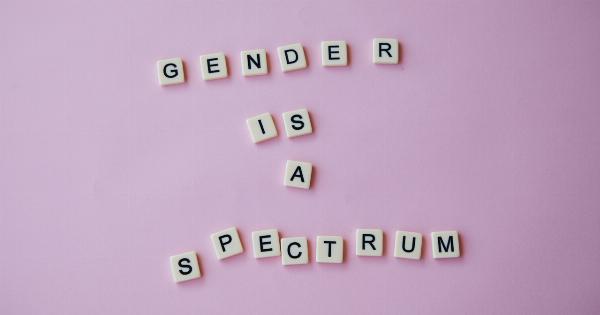The issue of entitlement has gained significant traction in recent times in the social discourse. The concept of entitlement has deep roots in human society and is largely associated with men.
While it is not limited to men, entitlement in men is the focus of this discourse. Often, many people confuse entitlement for confidence, arrogance, or a sense of control. However, entitlement is a broader concept that encompasses these traits and is often deeply entrenched in the cultural and social norms of many societies.
This article highlights some common misconceptions people hold about entitlement in men.
Myth 1: Entitlement is a male trait that only affects men
The notion that entitlement affects only men is a misconception that needs to be broken. Contrary to popular belief, entitlement has little to do with gender. Not all men are entitled, and not all women are humble.
Studies have shown that women display entitlement just as men do, but because society has normalized men’s power, women are often overlooked when it comes to entitlement. This bias is perpetuated by social and cultural norms, further perpetuating the assumption that entitlement is a male trait.
Myth 2: Entitlement is the same as confidence
Confidence is an admirable quality that everyone should aim to possess. On the other hand, entitlement is the belief that one deserves special treatment or privileges based on one’s gender, race, social status, or other factors.
While confidence is grounded in self-assurance, entitlement is built on the notion of feeling better or superior to others.
Myth 3: Entitlement is healthy
Some people believe that entitlement is healthy as it fosters a positive outlook on life and the belief that one deserves the world. However, entitlement can be detrimental.
It leads to the creation of unrealistic expectations that will never be met, fostering a sense of disappointment, frustration, and bitterness. When things do not go their way, entitled individuals experience an avalanche of negative emotions because they believe that they are entitled to more.
Myth 4: Entitled men just want control
Entitled individuals seek a sense of control, but it is different from wanting to control others. Men who exhibit entitlement believe that they deserve special treatment and often use power and authority to assert their dominance in every situation.
Their sense of entitlement is built on the notion of wanting to preserve this dominance even when it means infringing on the rights of others.
Myth 5: Entitlement is a personality trait that cannot be changed
Entitlement is not a personality trait like introversion or extroversion. It is a learned behavior that can be changed through self-reflection, empathy, and self-awareness.
The first step towards change is to recognize that you are entitled and to understand why you believe that you deserve special treatment. Through this process of self-discovery, you can start to let go of your feelings of entitlement and replace them with more positive and healthy behaviors.
Myth 6: Entitled men cannot be successful
It is a common belief that entitled men cannot be successful because their arrogance and sense of superiority are off-putting to others.
This is a common misconception as many entitled individuals are successful, but they still harbor a sense of entitlement. Entitled individuals are often seen as confident, which can help them advance their careers or achieve their goals. However, their sense of entitlement may lead to negative consequences in their personal lives, relationships, and mental health.
Myth 7: Entitled men are only found in certain professions
Entitlement knows no boundaries, and it can be found in all professions. While entitlement is rampant in professions such as politics, law, and finance, it is not limited to these professions.
Entitled individuals exist in all walks of life and can be found in all professions.
Myth 8: Entitlement is a harmless trait
Entitlement is far from being harmless. It can lead to a sense of self-entrapment that can affect relationships and personal growth. Entitlement is not only harmful to the individual but can also be harmful to society.
It perpetuates inequality, reinforces oppression, and undermines the concept of equal rights.
Myth 9: Entitlement is a new phenomenon
Entitlement is not a new phenomenon. It has been present since time immemorial and has been reinforced by societal and cultural norms. However, it has become more apparent in recent times due to the growing discourse on social justice.
Entitlement is deeply entrenched in the cultural and social norms of many societies, and it will take time and effort to eradicate this harmful trait.
Myth 10: Entitlement is a personal issue that concerns only the individual
Entitlement is a personal issue, but it goes beyond the individual. It affects relationships, the workplace, and society at large. Entitled individuals often infringe on the rights of others, leading to a sense of injustice, animosity, and resentment.
As such, it is a collective issue that requires collective action. Breaking the cycle of entitlement requires targeted education about the harmful effects of entitlement and advocacy for equal rights.































